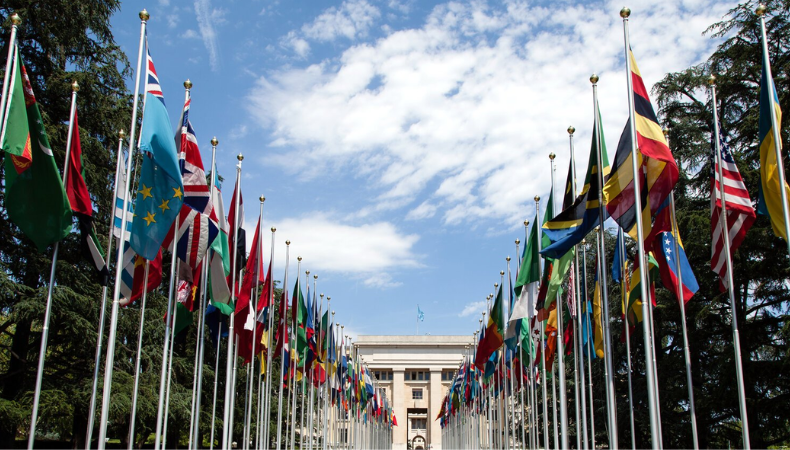Spain to join South Africa’s ICJ case against Israel: Which countries have joined this ICJ Case?

Interestingly, Spain has declared that it will join South Africa in the International Court of Justice (ICJ) dispute against Israel. This act changes international relations dramatically and begs the question of how the world should react to the situation generally. Spain, a well-known European country, taking part emphasizes the growing international disapproval of Israel’s activities and raises the possibility of a change in the diplomatic landscape surrounding the Israeli-Palestinian conflict.
A National Stand in Europe
Spain is the first nation in Europe to adopt such a firm legal position following South Africa’s filing with the International Court of Justice, hence its decision to join the lawsuit against Israel is revolutionary. A grave charge with important moral and legal ramifications, the case claims that Israel’s military operations in Gaza violate the genocide treaty. The fact that Spain is participating highlights the increasing worry of the international community regarding the humanitarian fallout from the continuous fighting. Spain is not only resolving the current problem by moving forward, but it is also establishing a standard for other Western and European countries to evaluate their stances.
Foreign Cooperation
Strong support for the lawsuit has come from several nations, who have united in a diverse alliance with the same purpose. Joining the action, Ireland becomes the second country in Europe to support this global legal battle. Apart from Ireland, Mexico, Colombia, Nicaragua, Libya, and the Palestinian territories have declared their intention to join the action. Together, many nations on different continents show a common dedication to investigating claims of genocide and use the legal system to pursue justice. The engagement of these countries shows how worldwide the issues surrounding the conflict are and is a coordinated attempt to hold people accountable for purported violations of human rights.
Remarks
A major change towards a more robust international posture on questions of human rights and international law is the involvement of numerous countries in the ICJ lawsuit against Israel. This collective legal action points to a developing worldwide agreement that might not put up with alleged injustices and violations of international agreements without due diligence and responsibility.
As the case develops, it will be critical to track how other nations—especially those in the UN and the European Union—as well as the larger international community react. The case might influence how comparable disputes and accusations are handled in the future and establish a high standard in international law and diplomatic relations. Moreover, the issue has a big influence on international justice and peace efforts since it may either show the shortcomings and difficulties of the present international legal system or open the door for more strict implementation of international human rights legislation.
Final Thought
The choice of Spain to support South Africa in its International Court of Justice action against Israel is a clear indication of the mounting worldwide indignation over the Gaza War. International law is being preserved and grave accusations are being handled internationally in this case at the International Court of Justice with the backing of several nations. It’s more than just a legal process; this is a part of a larger shift in international relations toward more responsibility and fairness.
Participating by so many countries raises the possibility that the way the world reacts to conflicts and human rights abuses is about to change dramatically. Seeing things from a distance, the result of this case may have a long-lasting effect on the global search for justice and peace, establishing new norms for international cooperation and behavior.
The choice made by Spain is important for time as well as for international law and European diplomacy. By this action, other European nations might be persuaded to adopt a different stance and become more actively involved in using international legal systems to resolve human rights issues. Additionally pointing to a change in global perceptions of collective action in the face of purported breaches of international law is the growing support for the case at the ICJ.
Keep On Reading
Increased membership of this alliance by other nations will surely increase pressure on the international community to address the accusations seriously and implement specific actions to guarantee accountability. The ICJ case might lead to more general talks about changing international legal frameworks to better effectively confront and stop violations of human rights. By highlighting the need of respecting international law and safeguarding human rights everywhere, the case may encourage a stronger international reaction to future disputes of a such nature.
Finally, the Spanish participation in the case against Israel before the International Criminal Court emphasizes the increasing worldwide demand for more justice and accountability in international relations. The need of handling significant accusations through the court system is highlighted by the broad coalition of nations that backs the future international attempts to safeguard human rights and international law. The verdicts of the case can have a significant impact on the international community as it develops, influencing the course of international justice and collaboration in resolving conflicts and human rights violations.






